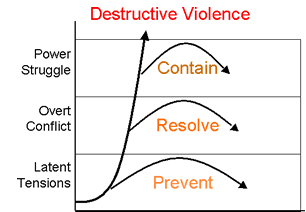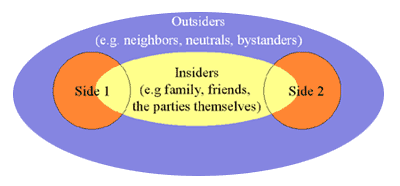The Healer: No Sting of Bitterness
By Ron Borges
Boston Globe
8/12/2003
Darryl Stingley didn’t say the human thing when he heard the news about Jack Tatum. Instead, he said the right thing, which is what has separated him from a lot of people for a long, long time.
Not as long as he’s sat in the wheelchair that has been so much a part of his life all these years. Not for 25 years this very day. But for a long time the paralyzed former New England Patriot wide receiver has said the right thing but not for the reasons so many athletes say it today. Not for the wrong reasons.
Not just to mouth words that sound good or to con the public or to sell sneakers to kids. He’s said the right thing because that’s how he lives his life.
He believes, in fact, that it’s probably why he still has a life so many years after his body was left broken on the floor of the Oakland Coliseum by the kind of hit everyone in pro football knows can happen but no one ever talks about. It’s like the elephant in the corner. Everybody sees it’s there. Nobody mentions it.
That’s why when he got the news, Stingley knew what some people would think. More importantly, he knew what he thought. They weren’t the same thing. Not even remotely.
“My mother handed me a newspaper that was folded over,” Stingley recalled of the day he learned that the man who paralyzed him 25 years ago was now losing his own legs. “It was folded so I’d see the bottom of the story first. It said something about how in 1978 Jack Tatum paralyzed me with a hit during an exhibition game. When I flipped the paper over, I saw the headline. `Fund raiser for fallen Buckeye.’ That’s when I first learned what happened.”
What happened was that Tatum, the former Oakland Raiders safety who in the late 1970s was one of the most feared men in football, had lost his left leg below the knee in April as a result of complications from diabetes and now was suffering from an arterial blockage that might cost him the lower part of his right leg. At the moment, the latter problem seems to have cleared up after his fifth surgery in six months, but for the man Tatum put in a wheelchair but never spoke to since, there was only one human thing to say.
Typical of Darryl Stingley, he didn’t say it.
The human thing was to say what some of Stingley’s friends and former teammates said: “What goes around comes around.” The human thing was to say, “He finally got what he deserved.”
What Stingley said was different because he’s different. Or at least he chooses to be different.
“You can’t, as a human being, feel happy about something like that happening to another human being,” Stingley said from his condominium overlooking Lake Michigan in Chicago. “Maybe the natural reaction is to think he got what was coming to him but I don’t accept human nature as our real nature. Human nature teaches us to hate. God teaches us to love.
“I feel for him in that situation. I lived it with my father. I know what he and his family are going through. When I first read it, I was shocked momentarily. Then I began to think about my own father. He was also diabetic and I remember how first he lost a few toes. Then a leg. Eventually we lost him. My thoughts quickly left me and Tatum and went to my father and how I missed him. I wondered if he was proud of me. I wondered if he thought I’d handled the things I had to handle well. Was I right in his eyes? That’s where my thoughts went to.
“The irony of Tatum losing his leg hit me. It was like the situation between us coming full circle. I know how that will change his life forever. I’d never wish that on anyone after I saw it with my own father. What happened to us happened 25 years ago. Now he has a cross to bear. I just hope maybe it will open his heart.”
Open the heart of The Assassin? Open the heart of a man who never once visited Stingley in all these years? Never once picked up the phone? Never once made a move toward reconciliation for the life-altering event they shared that night when Steve Grogan threw a football a little too high and Tatum came up the way he always did from his safety position and slammed his right shoulder, forearm, and head into Stingley, who was outstretched and reaching back for a pass that had already bounced off his fingertips and down the field?
Unforgettable moment
Aug. 12, 1978. The day your body turned to stone. You don’t forget that. You don’t forget how someone broke your neck with one perfectly legal but God-awful hit on a meaningless play in a meaningless game that has ever since carried with it so much meaning for Stingley and for Tatum too, as well as for a lot of other people who met a far different Stingley over the years than the one who wore No. 84 so proudly that night and have taken strength from him.
“I know exactly where I was that night,” recalled Jack Sands, Stingley’s longtime Boston-based agent. “Aug. 12 is my wedding anniversary. We were up in New Hampshire and I was listening to the game on a transistor radio that was fading in and out when I got the call someone was trying to reach me from the Raiders.
“When I got back home to Lexington the next day, Sports Illustrated was in my mailbox. The cover had a drawing of a player in a wheelchair. They had a story about people being hit and permanently paralyzed. It freaked me out.
“It comes back every year. When I’m with Darryl and anything comes up about that day, you can see his body shake. It twitches. He just gets a muscular reaction. But he’s a developed Christian today. The only thing that gets him upset is if what happened to him is being used for publicity. Like all former athletes, Darryl doesn’t want to be forgotten. The problem is why they haven’t forgotten him.”
No one who saw what happened that night or remembers it could forget. The rules changed after that. They changed too late to save Stingley from the life he was handed at the age of 26 but what he suffered has probably saved a lot of wide receivers over the years because that same hit today would not be seen the way it was described by Stingley’s then-coach, Chuck Fairbanks.
“There was nothing illegal or flagrant to be critical of in any way,” Fairbanks told the Globe two days after the game. “I resent that line of questioning. I resent anybody trying to read anything dirty into this. I don’t feel there is any cause for action.”
No flag was thrown that night. No action was ever taken against Tatum by the league or by Stingley. All that happened was that a young man’s body was broken and, in the end, his spirit was lifted.
“I want everyone who reads your column to know, I still very much love the game of football,” said Stingley. “I love everything about it except what’s sometimes inevitable. Football never did anything to me in a negative way. It just happened to be an individual within the game who did something to me.
“One person deliberately hurt another person. That’s the way the story was written by some. I respect anybody’s point of view on it. I’m not in denial about it. There was an incident between us and he did write a book [‘They Call Me Assassin’] and in it he said he went out there to hurt and maim people. He said that and it hurt to read it.
“But for me to go on and adapt to a new way of life, I had to forgive him. I couldn’t be productive if my mind was clouded by revenge or animosity. Early on there were a lot of questions in my mind. Questions about life in general. Questions if I would even live. But I have such a strong faith in God.
“It’s hard to articulate. It was a test of my faith. The entire story. In who, and how much, do you believe, Darryl? In my heart and in my mind I forgave Jack Tatum a long time ago. I take no pleasure in what has happened to him now. How could anyone feel pleasure in another man’s pain?”
That is a question many people asked of Tatum over the years.
A different game
On the night of the hit, Tatum said he was just doing his job. Some disagreed, but in those days pro football was a more violent place. Receivers like Stingley ran 6-yard slants into the teeth of defenses that could put helmets and every other part of the body right in their faces. It was a place where more than helmets got knocked loose. Sense got knocked loose and the game gloried in the violence.
Perhaps no one was ever better at such destruction than Tatum. A three-time Pro Bowl selection, he was one of the most feared hitters in the game. He and his teammates in the secondary — especially cornerback George Atkinson and safety Skip Thomas, who went by the nickname “Dr. Death” — ran a weekly pool. The first member of the secondary to knock a receiver cold won the money. Tatum collected the pot more than a few times.
So it was accepted around the NFL that the hit on Stingley was an “accident.” Tatum said that night, “I thought it was just a good football play. I hit him with my head and shoulder. I was just trying to do my job. It’s unfortunate but it happens.”
What happened doesn’t happen often, thank goodness, although one time would have been too many. Stingley had the fourth and fifth vertebrae in his neck broken. His spinal cord was so severely damaged that he was paralyzed from the chest down, although he did get back enough feeling in one arm that he says today, “I can’t throw my grandchildren up in the air like I want to but I can touch them. That’s a blessing.”
It takes a special man to go through such a change and still find blessings in little things. Darryl Stingley is such a man.
Awaiting the call
When Stingley and the Patriots embarked on that fateful road trip to the West Coast, he thought he knew what awaited him upon his return: a press conference. He was right about that but nothing else.
“I remember it as clear as if it was yesterday,” Sands recalled. “We had just negotiated a new contract extension for Darryl that would have made him one of the highest-paid receivers in the league but it hadn’t been announced. They were planning to announce it when the team got back from the West Coast. Just before they left, I remember telling him, `Now, Darryl, don’t go sprain your ankle.’ “
They never held that press conference. They never signed that new contract. And Tatum never said a word to Stingley. Not then. Not later. Not even now, with his own legs disappearing. (He declined to be interviewed for this article.)
A few years ago, representatives of Tatum proposed a reconciliation with Stingley to be televised on Fox. Stingley was all for it until late Globe sportswriter Will McDonough called and told him Tatum was coming out with a new book and wanted to use the interview to boost sales.
If ever bitterness was going to overtake Stingley, that would have been the day. That incident changed his point of view, but it didn’t change him. It didn’t harden his heart. All it did was change the meaning of reconciliation for him.
“Each time we’ve been contacted by people representing Jack, there always turned out to be another agenda,” Sands said. “If Tatum contacted Darryl or me to talk, Darryl would be more than willing to do it. But not for the media. Not for money. Darryl is rightfully cynical about that now.”
Not long ago, Stingley was approached by Deion Sanders about sitting down with Tatum for such a meeting to be shown as part of CBS’s football pregame package. Sanders told Stingley he was a Christian man, too, and perhaps it would do a lot of people filled with bitterness some good to see how he had handled an incident that changed his life without filling him with hate.
“I told him if they showed up at my door without a camera then we could have some real healing,” Stingley said. “This is a world built on hype. Selling newspapers. TV ratings. Those are real. But in my world what’s important is to have a forgiving nature. I was always ready for reconciliation with Jack Tatum. I was willing to do it once before until we learned at the final hour that it was about selling a new book. That changed my mind. I could not allow anybody to capitalize on my situation any more.
“I could not understand why a person would still take that approach so many years later. How could he try to take advantage of the situation again? How could he not feel serious regret or remorse for what happened?
“If he called me today, I’d answer. If he came to my house, I’d open my door to him. All I ever wanted was for him to acknowledge me as a human being. I just wanted to hear from him if he felt sorry or not. It’s not like I’m unreachable. But it’s not a phone call I’ll be waiting for anymore.”
But if Stingley’s prayers for Tatum are answered, the call will come, and if it does, he’ll answer because even though his legs were stilled 25 years ago, his heart beats on.
“Maybe this setback will let him take a walk in faith,” Stingley said. “Maybe it will unlock his jaw and make him pick up a phone. That night he created for me a life he knows nothing about. Now life and God have taught me to have compassion for that person. If I thought it would help him, I would print my phone number right in your newspaper. If he wants to just sneak me an e-mail he can send one to www.DarrylStingleyFoundation.com.
“What happened to me 25 years ago will never be forgotten but you can’t hold on to bitterness. I can’t do much of anything alone but I’ve been able to put my existence into perspective. I’m not perfect. I get angry. I lash out. But I choose not to hate. It’s such a cliche to hate. How can I benefit from that?
“The whole thing about life is it’s a trial, but I know why I’m here and I know who I am. When I chose to forgive Jack Tatum years ago, I chose to believe he was tormented, too. Maybe he needed forgiveness. I never got to tell him that, but it can’t rain forever.
“I’m one of God’s children. Jack Tatum is one of God’s children, too. We both have crosses to bear. For each of us there’s always a battle between the good side and the bad side. Sometimes the bad side wins. Sometimes the good. It’s up to us to make the choice. I choose to believe in God.”
Darryl Stingley also chooses to believe in something else. He chooses to believe the phone will ring one day and Jack Tatum will be on the other end. If it does, he’ll choose to say “hello” and see where it leads.




